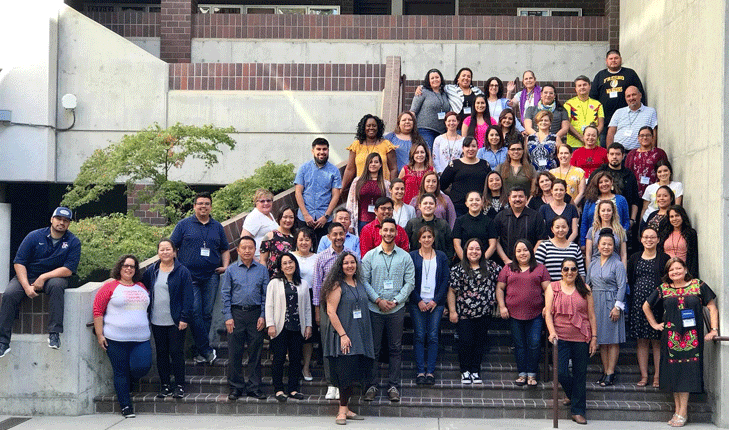When Jorge Morales immigrated to the United States from Jalisco, Mexico at age 9, he struggled with culture shock, assimilation to a new life and learning English. He remembers seeing other English learners struggling in school and wishing there were more helpful programs in place.
As Morales grew up, he realized he wanted to help students who are experiencing similar struggles. So he decided to become a teacher.
After graduating from Fresno State with a bachelor’s degree in Spanish and a Spanish teaching credential, he started teaching Spanish at Sunnyside High School in Fresno.
In 2016, Morales’ second year at Sunnyside, he was eager to find ways to be more effective, and he was inspired by the veteran teachers around him. He learned of workshops offered by the Central California World Language Project at Fresno State and decided to sign up.
World Language Workshops for Teachers
The project is part of a statewide initiative to improve access to high-quality world language instruction for K-12 educators. Both student teachers and experienced teachers are able to use resources and take them into their classrooms. Housed in the Kremen School of Education and Human Development at Fresno State, the project is positioned to provide targeted support for the needs of the Valley’s future teachers, including for those who speak Spanish or Hmong languages.
“Teachers learn and leave with strategies, ready to be implemented into the classroom,” said Nancy Perez, project director. “And that’s what makes the project interesting and appealing to teachers, because they come, they learn and they practice.”
The project is not just for world language teachers but provides resources for all teachers. Since the project started in 2014, it has trained and supported over 1,000 teachers.
Historically, workshops were hosted in person, but COVID-19 has shifted the workshops to virtual. The project is offering over 30 free online workshops from July 27 through March 12.
Because the workshops are offered virtually, the project is reaching teachers across the nation and the globe. There have been attendees from Chile, Colombia and the United Kingdom.
In order to meet the needs of a diverse audience, the project is offering a large range of topics for this year’s workshops.
The project is featuring workshops on new classroom teaching strategies, such as “Lesson Design in the 21st Century Classroom” (July 27) and “Focusing on Student Growth: A Lesson for our PLCs” (Oct. 5), as well as workshops on digital programs and apps such as “Adobe Sparks/Blooket” (July 29) and “Jamboard/Canva” (Nov. 2).
Registration is required for each individual workshop. Teachers who participate in 40 hours of training can receive 2.5 continuing education credits from Stanford University.
Morales first attended a Central California World Language Project workshop in 2016. He said he decided to attend the project’s technology workshop because of the importance of technology in the classroom. Fast forward five years, he is now facilitating technology workshops for other teachers.
“We use technology 80% of the time in my classroom,” Morales said. “My warmups are on Google Slides and tests and quizzes are on Google Forms. We do voice recordings and use Adobe Spark, Quizlet and Kahoots.”
He said the workshops are more than just gaining knowledge, they are a way to network with other teachers.
“From attending the workshops over the years, I learned how to be a teacher the students actually need in class. I can see myself in my students. I have learned how to be someone more than a teacher.”





